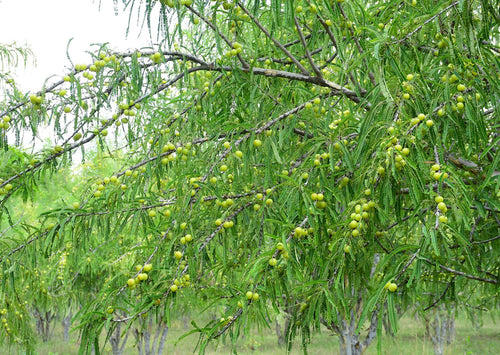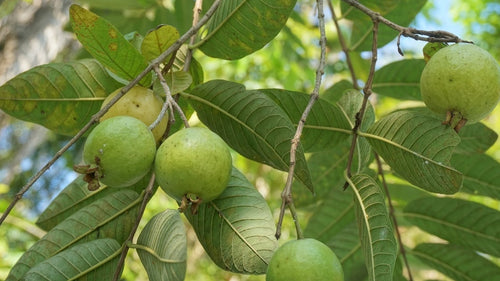Eco-Explorers: Redwood Edutours’ Urban Forest Tree Planting for Young Minds
Redwood Edutours’ tree plantation initiative, set within an urban forest concept, offers students a unique, hands-on opportunity to make a lasting env Read more
Project Update 2
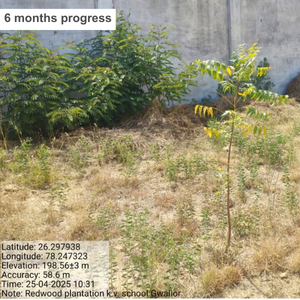
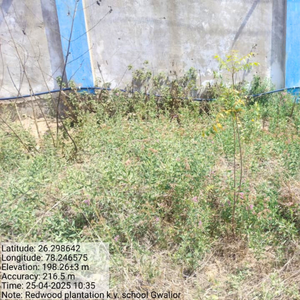
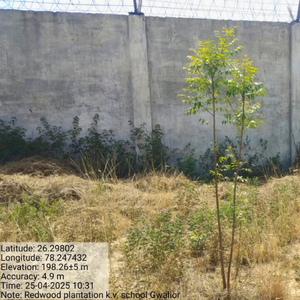


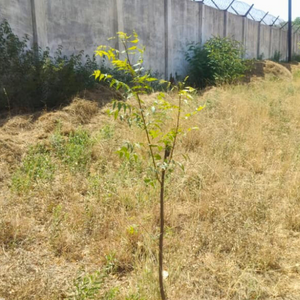
Project Update 1
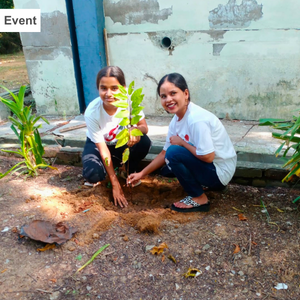
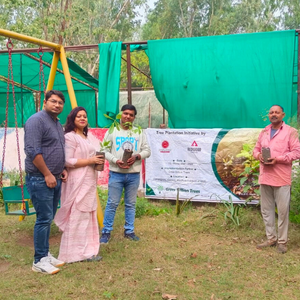
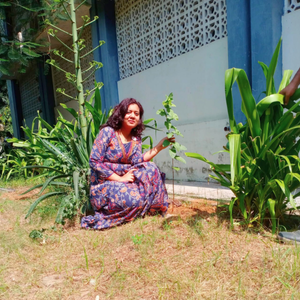
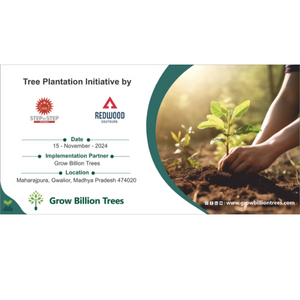
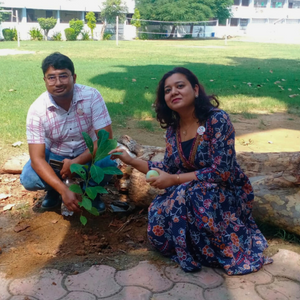
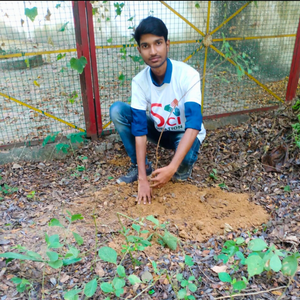
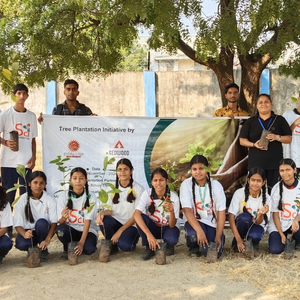
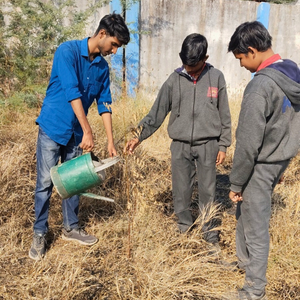
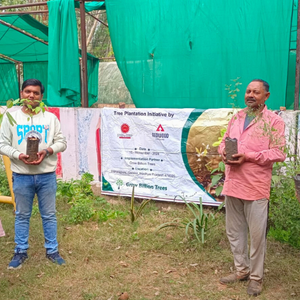
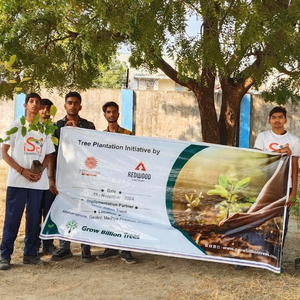
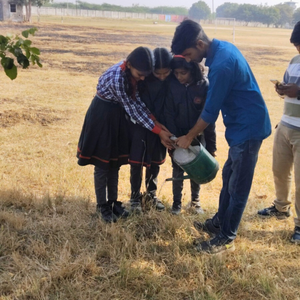
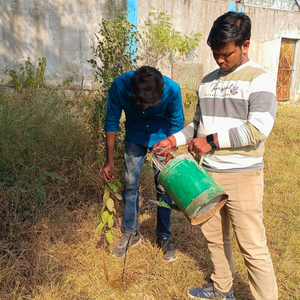
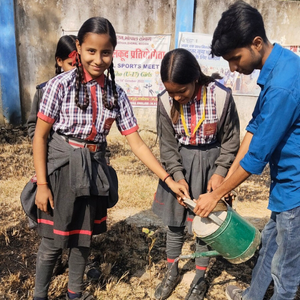
Digital Forest
Forest with 150 Trees planned
Want to plant your tree now?
Plant a Tree @ 299Trees Planted
Eco-Explorers: Redwood Edutours’ Urban Forest Tree Planting for Young Minds
Redwood Edutours’ tree plantation initiative, set within an urban forest concept, offers students a unique, hands-on opportunity to make a lasting environmental impact. Organized as part of an educational trip, this initiative takes place in the premises of a government school Gwalior, where students participated in planting trees that contribute to creating a greener, healthier environment.
Redwood Edutours, known for its custom educational programs for schools, colleges, and universities, designed this project to foster a deep understanding of sustainability through experiential learning. By engaging in this activity, students not only contribute to the environment but also gain valuable insights into the importance of urban forests, environmental stewardship, and community involvement. Through the act of planting and nurturing trees, they connect with nature and gain a firsthand understanding of how green spaces transform urban settings.
This initiative aligns with Redwood Edutours’ mission of using travel and hands-on experiences to enrich students’ understanding of people, places, and cultures, empowering young minds to envision and contribute to a more sustainable world.
Project Planning & Execution
No of Trees: 150
Plantation Location: Shanichra Road, Maharajpura, Gwalior, Madhya Pradesh 474020
Plantation Date: 15th November 2024
Name of Species: Guava, Custard Apple, Behada, Amla
Species Selection & Its Benefits:
The species selected for Redwood Edutours’ urban forestry initiative were carefully chosen to reflect the organisation’s commitment to experiential learning, environmental stewardship, and community engagement. Focused on enhancing urban green spaces and fostering biodiversity, the initiative included a thoughtfully curated mix of native and resilient species such as Guava, Custard Apple, Behada, and Amla.
These species were selected for their ecological adaptability, nutritional value, and alignment with Redwood Edutours’ mission of nurturing sustainable, vibrant communities through education and action. Each species brings a unique set of ecological and environmental benefits. Guava and Custard Apple are fruit-bearing trees that support local biodiversity by attracting pollinators and providing food sources for birds and wildlife.
Amla, revered for its medicinal properties, enhances soil fertility and promotes health and wellness initiatives. Behada, a hardy native species, contributes to air purification, soil stabilisation, and the restoration of natural ecosystems. Together, these trees work to improve air quality, support groundwater recharge, enhance urban cooling, and create living laboratories for students to learn from nature firsthand.
This thoughtful species selection ensures a lasting environmental impact, resonating with Redwood Edutours’ vision of planting the seeds of knowledge, sustainability, and global citizenship in young minds, empowering them to nurture a greener future.
Beneficiaries Details
-
Target Population: Employees, stakeholders, and local community members of Gwalior
-
Age Group: All age groups focus on adults to seniors
-
Gender: Inclusive of all genders
- Social & Economic Status: Open to all social and economic backgrounds, emphasizing community involvement
Planting Methodology and Its Advantages
Urban Forestry: An urban forest is a network of trees, shrubs, and vegetation strategically planted in urban areas to enhance biodiversity, improve air quality, reduce the urban heat island effect, and provide green spaces for community well-being. It helps mitigate climate change by absorbing carbon dioxide, promotes mental health through accessible green areas, and supports local wildlife by creating habitats. Urban forests play a vital role in building resilient, sustainable cities that benefit both the environment and the people living there.
Advantages of Urban Forestry
-
Climate Regulation and Cooling Effect: Urban forests help mitigate the urban heat island effect by providing shade and cooling through transpiration, lowering city temperatures, reducing the need for air conditioning, and conserving energy.
-
Improved Air Quality: Trees absorb pollutants like carbon dioxide, nitrogen oxides, and particulate matter, leading to improved air quality and reducing the risk of respiratory illnesses in urban areas.
-
Stormwater Management and Flood Prevention: Urban forests improve the soil’s ability to absorb and retain water, reducing stormwater runoff, preventing flooding, and promoting groundwater recharge, thus helping manage water resources efficiently.
-
Soil Erosion Control: The deep root systems of trees prevent soil erosion, especially in areas with heavy rainfall or steep slopes, stabilising the land and reducing soil loss in urban environments.
-
Aesthetic and Recreational Value: The transformation of unused spaces into green zones adds aesthetic value to the area and provides employees and local communities with recreational spaces, making the workplace more enjoyable.
-
Enhanced Community Engagement and Well-being: Urban forests provide accessible green spaces where communities can engage in recreational activities, improving mental health, reducing stress, and fostering a sense of environmental stewardship among residents and employees.
-
Increased Property Value: Properties located near urban forests or green spaces tend to have higher market values, benefiting local property owners and increasing the overall appeal and livability of the area.
- Noise Reduction: Urban forests act as natural sound barriers, reducing noise pollution and creating quieter, more peaceful surroundings.
Activities During Tree Plantation
The tree plantation drive at Shanichra Road, Maharajpura, Gwalior, was a key highlight of an educational trip organised by Redwood Edutours for students from Step by Step School, Noida. The activity underscored Redwood’s commitment to sustainability, education, and environmental stewardship by integrating meaningful environmental action into a hands-on learning experience.
The site was prepared in advance by the ground team, ensuring optimal planting conditions with pre-dug pits and enriched soil. On the day of the event, students, accompanied and guided by the Redwood team, enthusiastically planted saplings of four carefully chosen fruit-bearing and medicinal tree species. This interactive exercise offered students a unique opportunity to connect with nature while learning about biodiversity, ecological responsibility, and teamwork.
The drive concluded with a reflection circle, where students shared their insights and hopes for a greener future. This initiative beautifully captured Redwood Edutours’ philosophy of experiential learning, proving that real-world engagement enhances classroom lessons and plants the seeds for lifelong environmental consciousness.
Conclusion Elements
Impact
Direct Impact
| Parameters | Values | References |
| No. of Trees Planted | 150 | |
| Green Cover (Acres) | 0.04 | |
| Carbon Sequestration Potential (KG) | 20 |
Small to medium-sized trees can sequester around 10–48 kilograms (22–106 pounds) of CO₂ annually. https://onetreeplanted.org/blogs/stories/how-much-co2-does-tree-absorb |
| Carbon Sequestration by 150 mature trees ( Tons/year) | 3 Tons | No. of Trees x Carbon Sequestration by 1 mature trees per year |
| Carbon Credit Equivalent | 3 | One carbon credit is equivalent to one tonne of carbon dioxide or the equivalent amount of another greenhouse gas. |
| Carbon Footprint of an avg Indian Citizen (Tons/Year) | 1.8 | https://www.iea.org/countries/india/emissions |
| Offsets Annual Carbon Footprint of (Adults) | 2 | Carbon offset by 150 mature trees per year / Carbon Footprint of an avg Indian Citizen per year |
(This impact analysis is forward-looking (An urban-forest project matures in 3-5 years)
Indirect Impact
Community Impact
-
Improved Public Health: By improving air quality and reducing urban heat, the project indirectly contributes to better public health. The presence of green spaces encourages outdoor activities, which can reduce stress levels, promote mental well-being, and decrease the incidence of respiratory diseases.
-
Environmental Awareness: Involving communities in urban forestry raises awareness about environmental conservation and promotes sustainable practices in daily life.
-
Student Learning & Engagement: The initiative fostered a sense of responsibility and environmental consciousness among students, enhancing their understanding of sustainability while strengthening their connection to nature and each other through collaborative action.
-
Inspiration for Change: By showcasing the potential of urban forestry, the project has encouraged other organisations and local communities to undertake similar initiatives.
-
Cultural Shift: The initiative instilled a mindset of sustainability and environmental care among participants, creating advocates for green practices in their personal and professional lives.
Environmental Impact
-
Carbon Sequestration: The trees planted through Redwood Edutours’ urban forestry initiative absorb carbon dioxide, acting as carbon sinks and helping mitigate climate change by reducing greenhouse gas emissions.
-
Soil Health Improvement: The tree planting initiative enhances soil health by enriching it with organic matter, improving soil fertility and structure, which supports the growth of surrounding vegetation.
-
Erosion Prevention: Tree roots help stabilise the soil in urban areas, preventing erosion caused by wind and water while safeguarding nearby properties and infrastructure from potential damage.
-
Biodiversity Conservation: By creating green spaces, the initiative supports local biodiversity, providing habitats for various species, pollinators, and beneficial insects, and enhancing the ecological balance in urban areas.
-
Water Cycle Regulation: The urban forestry project helps regulate the water cycle by improving water retention in the soil, recharging groundwater levels, and reducing surface runoff, leading to a more balanced and sustainable urban environment.
- Microclimate Regulation: Trees planted through this initiative moderate temperature extremes, reduce wind speeds, and increase humidity, creating a favourable microclimate for both the community and the urban ecosystem.
Achievements
SDG Goals Achieved through Urban Forestry
-
SDG 3: Good Health and Well-Being – The Redwood Edutours’ urban forestry project enhances air quality and creates green spaces that promote physical and mental well-being, reducing stress and fostering a healthier urban lifestyle.
-
SDG 4: Quality Education – By integrating experiential learning into environmental action, Redwood Edutours empowers students with practical knowledge and skills to drive sustainable development.
-
SDG 6: Clean Water and Sanitation – Trees play a crucial role in water conservation by enhancing groundwater recharge, reducing surface runoff, and improving overall water retention. The Redwood Edutours’ initiative supports sustainable urban water systems through afforestation and green infrastructure.
-
SDG 7: Affordable and Clean Energy – By mitigating the urban heat island effect, Redwood Edutours’ tree plantation efforts help lower ambient temperatures and reduce reliance on artificial cooling. The shade provided by trees enhances energy efficiency and promotes a more sustainable urban climate.
-
SDG 8: Decent Work and Economic Growth – The initiative generates employment opportunities in tree planting, maintenance, and ecological restoration, contributing to local economic development and green job creation.
-
SDG 9: Industry, Innovation, and Infrastructure – Redwood Edutours integrates sustainable urban forestry into infrastructure planning, promoting green innovation and enhancing urban resilience.
-
SDG 10: Reduced Inequalities –The initiative ensures inclusivity by engaging employees from diverse backgrounds in environmental conservation. By creating accessible green spaces, Redwood Edutours promotes environmental equity and ensures that all communities, including marginalised groups, benefit from cleaner air, mental well-being, and recreational opportunities.
-
SDG 11: Sustainable Cities and Communities – Redwood Edutours’ commitment to urban afforestation contributes to creating more sustainable and resilient cities by increasing green cover, improving air quality, and enhancing urban biodiversity.
-
SDG 12: Responsible Consumption and Production – Redwood Edutours’ commitment to sustainability is reflected in its responsible approach to urban forestry, focusing on resource efficiency and long-term environmental benefits.
-
SDG 13: Climate Action – The plantation initiative actively supports climate action by sequestering carbon, reducing greenhouse gas emissions, and mitigating climate change effects through the expansion of green spaces.
-
SDG 15: Life on Land – By restoring green spaces with native and fruit-bearing trees, the initiative strengthens biodiversity, supports wildlife, and contributes to a thriving urban ecosystem.
-
SDG 16: Peace, Justice, and Strong Institutions – By fostering inclusive decision-making and community-led governance, Redwood Edutours strengthens local environmental stewardship, ensuring transparency and collaboration for sustainable urban development.
-
SDG 17: Partnerships for the Goals – The initiative thrives on collaboration with local communities, environmental organisations, and partners such as Grow Billion Trees. Redwood Edutours strengthens environmental partnerships to drive impactful urban sustainability and afforestation efforts.
ESG Achieved through Urban Forestry
-
Environmental Impact: Redwood Edutours’ urban forestry initiative significantly enhances environmental sustainability. By planting diverse tree species, the company boosts biodiversity, creates habitats for wildlife, and supports local ecosystems. Trees act as carbon sinks, reducing CO2 levels and mitigating climate change. Additionally, the initiative improves urban climate resilience by regulating temperatures, reducing the heat island effect, and enhancing water retention, ensuring long-term ecological health for future generations.
-
Social Impact: Redwood Edutours’ urban forestry initiative fosters community engagement and well-being by encouraging local participation in tree planting and environmental awareness. The green spaces created improve air quality, promote physical activity, and enhance public health. It also helped students to learn more about our environment and fostered a sense of responsibility towards green sustainability. The project generates job opportunities in tree planting and maintenance while promoting social equity by ensuring access to green spaces for all, including marginalised groups. These efforts build a more inclusive, resilient, and sustainable community.
- Governance Impact: Redwood Edutours demonstrates strong leadership and commitment to sustainability through its urban forestry initiative. The company ensures transparency and accountability by effectively communicating project plans and outcomes to stakeholders. By collaborating with environmental organisations and local communities, it amplifies the impact of its efforts. This approach aligns with best governance practices, achieving environmental and social goals while promoting long-term sustainable growth.
Building Communities
One of the most impactful outcomes of Redwood Edutours’ urban forestry initiative was the sense of unity and collaboration it cultivated. By involving students, local communities, and volunteers, the project became a collective mission to create sustainable urban green spaces, fostering a shared commitment to a greener future.
-
Empowering Students: The students emerged as active contributors to the green transformation, gaining practical knowledge about urban forestry and the importance of ecological balance. This hands-on experience empowered them to take ownership of their actions and deepened their sense of environmental responsibility. Through this initiative, they were inspired to become young stewards of nature, ready to champion sustainability in their communities and beyond.
-
Fostering Partnerships: The project brought together diverse stakeholders, including Redwood Edutours, Grow Billion Trees, students, and local communities, highlighting the value of collaboration in achieving environmental and social goals.
-
Creating a Ripple Effect: As communities experienced the benefits of urban forestry, their enthusiasm inspired others to adopt similar practices, amplifying the initiative's positive impact across the region.
This initiative demonstrates that environmental sustainability thrives when rooted in collective effort. It’s not just about planting trees; it’s about planting hope, collaboration, and a shared vision for a healthier and greener future.
Commitment by Grow Billion Trees
Trees for Corporates
Trending
Most Popular
1. Tree Plantation for Students
Tree plantation for students is not just about planting trees; it’s about planting seeds of environmental consciousness! Redwood Edutours understands that hands-on learning is the best way to engage the next generation of eco-warriors. With their tree plantation initiative, students get the chance to dig in the dirt, nurture saplings, and witness the green spaces around them flourish. This type of experiential learning connects students to the natural world, making them more aware of their role in preserving it. As they water their plants and watch them grow, students gain a deeper understanding of how trees help in combating climate change, improving air quality, and promoting biodiversity. Tree plantation initiatives also foster a sense of responsibility and teamwork, creating a bond between students and their environment. For Redwood Edutours, it’s not just about a fun trip; it’s about shaping young minds to be future stewards of the earth.
2. Urban Forest Initiative
Urban forests are the green lungs of our cities, but they don’t grow by themselves! That’s where the urban forest initiative by Redwood Edutours comes into play. By introducing students to the concept of urban forests, Redwood Edutours is planting the seeds of knowledge about how vital these green spaces are to urban health. Urban forests help reduce pollution, provide shade, and even make cities cooler, combating the “urban heat island” effect. During their educational trips, students learn how strategic tree plantation can transform barren, concrete-laden areas into thriving ecosystems that support biodiversity. They also discover how green spaces improve mental health and community well-being. The students aren’t just learning about nature—they’re actively contributing to it, one tree at a time. Through this hands-on initiative, Redwood Edutours empowers the next generation to appreciate and expand urban forests for a healthier, more sustainable future.
3. Environmental Education through Travel
Who says you need to sit in a classroom to learn about the environment? With Redwood Edutours, students get the chance to learn about nature while traveling and exploring the world around them. Environmental education through travel is a powerful way to give students real-world experiences that textbooks can’t match. Through hands-on activities like tree planting in urban forest settings, they can see firsthand the impact their actions have on the planet. These travel-based educational trips immerse students in ecosystems, helping them connect with nature while also learning about the importance of conservation. The goal is to inspire a deeper understanding and love for the environment, cultivating eco-conscious citizens who will make a positive impact on the world. When students engage with nature in real time, they are more likely to carry those lessons with them for a lifetime.
4. School Tree Plantation Projects
Imagine a school where the grounds aren’t just for learning math or science but are also growing with knowledge about sustainability. Redwood Edutours’ school tree plantation projects make this dream a reality. Students at local government schools get their hands dirty (literally!) as they plant saplings on their school grounds, transforming their learning environment into a green haven. These projects are more than just a fun activity; they teach students about environmental science, teamwork, and the importance of caring for their local ecosystems. As the trees grow, so does their knowledge of how these green spaces contribute to healthier communities, better air quality, and a more sustainable future. It’s the perfect mix of hands-on learning and environmental advocacy, proving that small actions today can lead to big changes tomorrow. School tree plantation projects aren’t just about the trees—they’re about nurturing the future.
5. Sustainability in Urban Areas
Sustainability in urban areas doesn’t mean sacrificing modern conveniences; it means finding ways to coexist with nature in the city. Redwood Edutours is helping students understand this through their urban forest initiatives. By introducing tree planting in urban spaces, students learn that sustainability is more than just a buzzword—it’s a way of life. They see how green spaces in cities can reduce pollution, conserve energy, and even create beautiful spaces for people to gather. Urban sustainability isn’t just about using fewer resources; it’s about actively working to restore and protect the environment within the city. Through their educational trips, students learn how a city’s infrastructure can integrate green solutions, such as urban forests, which improve air quality, promote biodiversity, and reduce noise pollution. It’s a lesson in the power of balance, and Redwood Edutours is showing students that the future of our cities doesn’t have to be a concrete jungle.
6. Hands-on Environmental Learning
When it comes to teaching students about the environment, nothing beats hands-on learning. Redwood Edutours specializes in creating experiences that go beyond the classroom to give students practical, real-world lessons in sustainability. Tree planting in an urban forest setting provides students with an opportunity to get directly involved in ecological efforts. As they plant trees, water them, and learn about their role in the environment, students get a deeper appreciation for the planet and the importance of conservation. They’re not just reading about the environment—they’re actively shaping it. Hands-on environmental learning encourages students to connect with nature, fostering a sense of responsibility and inspiring them to continue making sustainable choices long after the trip ends. With Redwood Edutours, the classroom goes wherever the adventure takes them!
7. Government School Green Initiatives
students plant trees, water them, and take ownership of their school’s green transformation. By introducing urban forest concepts to government schools, Redwood Edutours is helping to create better learning environments, improve air quality, and promote the idea of community-driven sustainability. Government school green initiatives are a win-win, bringing lasting benefits to both students and their communities.
8. Tree Plantation in Schools
Tree plantation in schools is a simple yet powerful way to teach students the importance of environmental conservation. Redwood Edutours takes this concept to the next level by organizing tree plantation activities in urban forest settings. Students at local schools participate in planting trees that not only beautify their campus but also provide ecological benefits like improved air quality, shade, and biodiversity. As they engage in these activities, students learn valuable lessons about ecology and the importance of caring for the environment. Tree plantation in schools isn’t just about adding greenery to the campus; it’s about fostering a sense of ownership and responsibility toward the planet. With every sapling planted, students are not only contributing to a greener world but also gaining the knowledge and skills to help preserve it. It’s a fun, educational, and impactful way to make a difference!
FAQ
What is the importance of tree plantation in urban areas?
Tree plantation in urban areas plays a crucial role in improving air quality, reducing pollution, and providing green spaces for relaxation and recreation. It helps combat the urban heat island effect, mitigates climate change, and supports local biodiversity. At Redwood Edutours, we encourage students to participate in urban tree plantation projects as part of our educational trips, teaching them the importance of sustainability and environmental stewardship.
What is an urban forest and why is it important?
An urban forest is a network of trees and green spaces within a city. It’s essential for improving air quality, providing shade, and enhancing the mental and physical well-being of city dwellers. Redwood Edutours helps students understand the role of urban forests through hands-on experiences, like tree planting, so they can appreciate the value of green spaces in urban settings and learn how these initiatives can transform cities into healthier, more sustainable places.
How does Redwood Edutours incorporate tree plantation into its educational trips?
At Redwood Edutours, we integrate tree plantation into our educational trips by organizing hands-on experiences where students actively participate in planting and caring for trees. These activities take place in government school grounds, where students learn about urban forests and the impact of trees on the environment. It’s an opportunity to engage with nature and understand the significance of sustainability while contributing to the creation of green spaces in urban areas.
Why should students participate in tree plantation activities?
Tree plantation activities provide students with an opportunity to connect with nature and understand their role in preserving the environment. By participating in these activities, students gain valuable lessons on sustainability, teamwork, and the importance of trees in urban ecosystems. At Redwood Edutours, we encourage students to plant trees during our educational trips, allowing them to take part in hands-on learning that has lasting environmental benefits for their communities.
How does tree plantation contribute to environmental sustainability?
Tree plantation contributes to environmental sustainability by improving air quality, enhancing biodiversity, and reducing carbon emissions. Trees absorb carbon dioxide, provide oxygen, and help regulate local climates. At Redwood Edutours, our tree plantation initiatives in urban forests teach students about the environmental benefits of planting trees and encourage them to play an active role in sustainability, both now and in the future.
What are the benefits of urban forests to local communities?
Urban forests provide numerous benefits to local communities, including improved air quality, reduced heat, and enhanced green spaces for recreation and relaxation. They also support local wildlife, improve mental health, and reduce the effects of climate change. Redwood Edutours educates students about these benefits by involving them in tree plantation activities, showing them how they can contribute to building healthier, more sustainable communities.
How can urban forests help reduce pollution in cities?
Urban forests help reduce pollution by absorbing pollutants such as carbon dioxide, nitrogen dioxide, and particulate matter. Trees act as natural air filters, improving air quality in cities. Redwood Edutours uses educational trips to teach students about the role of urban forests in reducing pollution, allowing them to experience firsthand how tree planting initiatives improve the environment and the quality of life for urban residents.
What steps are involved in a tree plantation initiative by Redwood Edutours?
Redwood Edutours' tree plantation initiatives begin with site preparation, followed by the involvement of students in planting and watering trees. During our educational trips, students learn about the benefits of urban forests, the types of trees best suited for urban environments, and how to care for them. This hands-on approach helps students appreciate the importance of tree plantation in maintaining green spaces and fostering environmental sustainability.
How do tree plantation initiatives contribute to biodiversity in urban areas?
Tree plantation initiatives increase biodiversity in urban areas by creating green spaces that attract various plant and animal species. Urban forests provide habitats for birds, insects, and other wildlife. At Redwood Edutours, our tree plantation activities teach students about the role of trees in supporting biodiversity, helping them understand how these efforts contribute to healthier, more balanced ecosystems in cities.
How can schools participate in tree plantation programs with Redwood Edutours?
Schools can participate in Redwood Edutours’ tree plantation programs by organizing educational trips where students can actively engage in tree planting activities. We work closely with schools to design custom programs that align with their curriculum and environmental goals. These trips allow students to learn about urban forests, the importance of trees, and how they can contribute to sustainability through tree planting initiatives.
- Choosing a selection results in a full page refresh.
- Opens in a new window.


